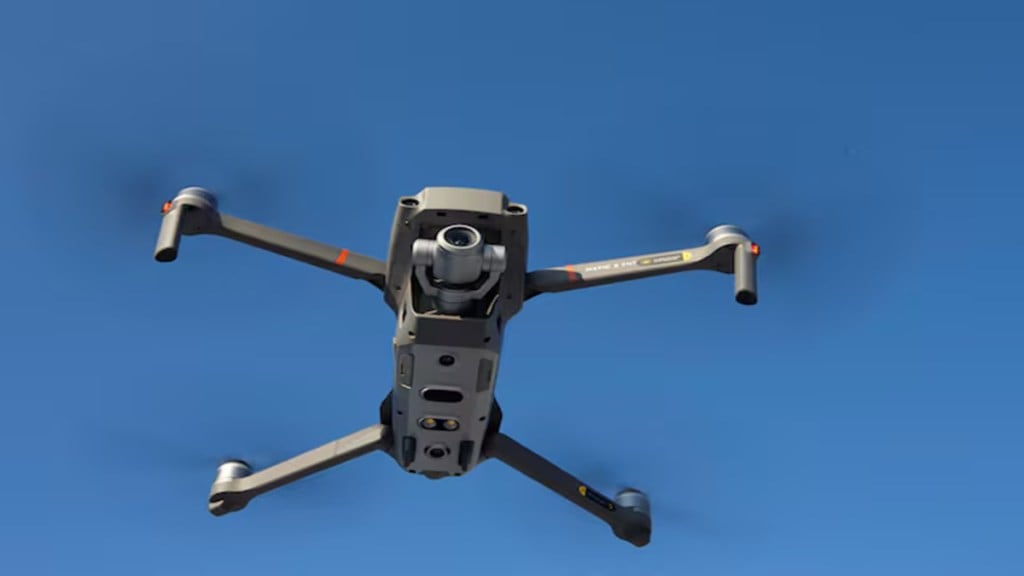The recent India-Pakistan conflict, which prominently showcased the effectiveness of unmanned aerial vehicles (UAV), loitering munitions, and swarm drone systems over conventional fighter jets, has triggered renewed calls for long-term policy support for defence tech startups. Defence analysts and industry stakeholders said that the momentum must be channelled into structured public-private collaboration, with suggestions for a FAME-style scheme specifically tailored to support indigenous innovation in these critical technologies.
The war, widely seen as a turning point in military tactics, demonstrated how asymmetric warfare tools like drones can deliver high-impact results at lower cost and risk. As loitering munitions and autonomous swarm systems played a decisive role in India’s precision strikes and surveillance superiority, analysts point out that the startup ecosystem is well-positioned to lead this transformation, provided it gets sustained policy and financial support.
“Operation Sindoor has underlined how vital these emerging technologies are. Our startups have shown their potential, but for them to scale meaningfully, we need consistent demand signals and a clear procurement roadmap from the government,” said Ankit Mehta, CEO and co-founder of ideaForge, a leading Indian drone manufacturer. He said that India, while strong in missile systems, must now aim to lead in UAV and drone technologies, which have become strategic necessities.
Mehta sressed the need for dependable public-private partnerships and transparent procurement processes, highlighting that technologies developed during peacetime must be readily deployable when conflict arises. “Defence innovation cannot succeed in isolation,” he added. “The capabilities we have built should not lie idle due to lack of structured support,” he said.
Despite the sector’s rise in global attention following Russia’s invasion of Ukraine, India’s defence tech segment continues to face systemic hurdles. These include erratic procurement cycles, heavy reliance on public sector undertakings, and the persistent dominance of L1 tendering norms, which prioritise lowest cost over innovation. This deters private capital, which remains cautious in the absence of long-term visibility and structured demand.
“Until we see startups being granted multi-year contracts, backed by funding pipelines that allow for serious R&D, this sector will find it hard to grow beyond isolated wins,” said Hareesh Chandrasekar, CEO and co-founder of AGNIT Semiconductors. His company manufactures GaN wafers and devices for strategic wireless defence and space applications.
According to Tracxn, India currently has 133 active defence tech startups, which have raised a total of $405 million through 131 funding rounds, which is still modest when measured against the capital-intensive demands of aerospace and defence technology development.
Analysts said that a FAME-style incentive scheme, to provide targeted subsidies and structured capital support for startups in unmanned and autonomous systems, will be ideal at this stage. “PLI schemes are a good start, but a more aggressive, tailored initiative is the need of the hour,” said Santosh Balajee Banisetty, founder of Zebu, a startup developing autonomous systems.
These incentives could include subsidising capital expenses for manufacturing, high-end prototyping, and dedicated R&D infrastructure. “Startups are still struggling with upfront costs and lack of access to testing infrastructure. Long-term contract visibility is key, especially in deep-tech segments where defence volumes are too small to sustain innovation without government assurance,” Banisetty added.
While schemes like iDEX (Innovations for Defence Excellence) and ‘Make in India’ have helped ease some bottlenecks, experts say their benefits need to be scaled significantly. The iDEX programme, for instance, aims to support 300 startups and MSMEs, but the sector’s growth trajectory demands more aggressive funding and faster onboarding into mainstream defence procurement.
Garuda Aerospace, a startup making tactical drones for surveillance, logistics and counter-drone warfare, recently closed a Series B funding round to expand its R&D capabilities. Its flagship “Trishul” drone, used in border monitoring, highlights how private sector innovation can fill critical gaps, provided there is a channel for scale and integration.
“The defence ecosystem in India must move from episodic to systemic support. Without long-term procurement commitments and structured incentives, innovation risks stalling,” said Chandrasekar. “We need to capitalise on this moment, and that requires a multi-decadal vision, not just a wartime response,” he said.

